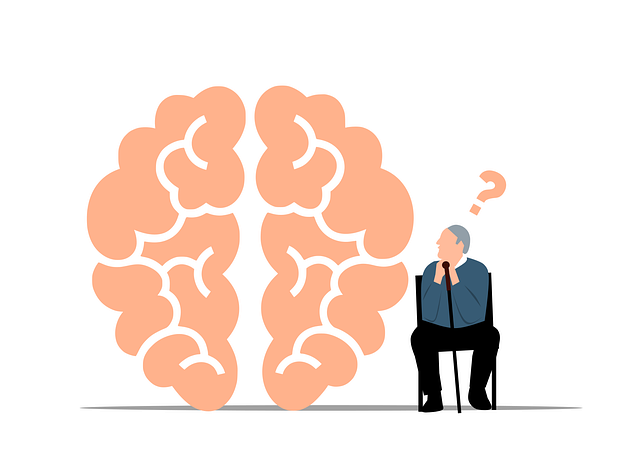Produing Podcasts for ASD: Engaging Content, Effective Reach
Creating a mental wellness podcast focused on therapy for children with Autism Spectrum Disorder (AS…….
Autism Spectrum Disorder (ASD) is a complex neurodevelopmental condition that affects individuals across the globe, shaping their interactions with the world around them. The spectrum nature of ASD encompasses a wide range of symptoms and severities, from mild social difficulties to more severe communication challenges and repetitive behaviors. This article delves into the realm of therapy designed specifically for children on the autism spectrum, exploring its various forms, benefits, and impact on global healthcare systems. By understanding this therapeutic approach, we can better support and advocate for the unique needs of autistic children, fostering their growth and inclusion in society.
Therapy for children with ASD refers to a range of evidence-based interventions aimed at improving social communication skills, behavioral functioning, and overall quality of life. It is a personalized approach that takes into account the unique strengths and challenges of each child. The core components often include:
The field of autism therapy has evolved significantly over the past few decades. In the early 1900s, little was understood about autism, and many individuals with ASD were institutionalized. The 1960s and 1970s saw the emergence of behavioral interventions, such as ABA, which laid the foundation for modern therapy practices.
In recent years, there has been a growing emphasis on early intervention, recognizing that early therapy can significantly impact long-term outcomes. The effectiveness of tailored therapeutic approaches is supported by numerous studies, highlighting their role in enhancing social and communication abilities, improving academic performance, and promoting independence in individuals with ASD.
ASD is a global concern, affecting children across diverse cultures and communities. According to the World Health Organization (WHO), approximately 1 in 160 children worldwide has an autism spectrum disorder. The impact of therapy for ASD varies across regions due to differences in healthcare access, cultural perspectives, and resource availability.
The economic implications of ASD therapy are multifaceted, impacting healthcare systems, families, and societies at large.
Technology has revolutionized the landscape of ASD therapy, offering innovative tools to enhance traditional interventions.
The development and implementation of policies related to ASD therapy are crucial for ensuring equitable access and quality of care.
Despite significant progress, ASD therapy faces several challenges and criticisms that require careful consideration and strategic solutions.
Real-world examples illustrate the transformative power of ASD therapy when implemented effectively.
Japan has made significant strides in ASD diagnosis and support, particularly through early intervention programs. The Tokyo Metropolitan Government’s “Early Support for Children with Developmental Disorders” project focuses on comprehensive support for children aged 0-6 years old. This includes home visits by healthcare professionals to assess and provide interventions tailored to each child’s needs. The program has shown promising results in improving communication skills and social interactions in young autistic children.
The “Mindful Kids” program in Melbourne, Australia, offers an integrative approach combining ABA therapy with mindfulness-based practices. This unique model aims to enhance emotional regulation, attention, and social skills in children with ASD. By incorporating mindfulness techniques, the program addresses the often-overlooked emotional and sensory aspects of autism. Initial studies indicate improved anxiety levels and overall well-being among participants.
In rural areas of the US, where access to specialists is limited, teletherapy has proven effective. The “Rural Autism Support Network” connects families with certified therapists through secure video conferencing. This model not only overcomes geographical barriers but also reduces travel costs and time for families. Regular therapy sessions via videoconferencing have shown positive outcomes in social communication and behavioral management.
The field of ASD therapy is poised for exciting developments, driven by technological advancements, evolving research, and a growing global awareness.
Therapy for children with Autism Spectrum Disorder is a dynamic field, continually evolving to meet the diverse needs of individuals on the spectrum. From early intervention strategies to technological innovations, we have witnessed significant progress in improving outcomes and enhancing lives. As research continues to uncover the complexities of autism, therapy practices will adapt and refine their approaches, ensuring better support for autistic children and adults worldwide.
Q1: How do I know if my child needs ASD therapy?
A: If your child exhibits delays in social interaction, communication, or repetitive behaviors, it may be indicative of autism. Consult with healthcare professionals who can conduct comprehensive assessments to determine eligibility for therapy services.
Q2: What types of therapy are most effective for ASD?
A: The effectiveness of therapy depends on various factors, including the child’s age, severity of symptoms, and individual needs. A multi-modal approach combining behavioral, speech, social skills training, and sensory integration therapies is often recommended.
Q3: Can technology truly replace traditional therapy for ASD?
A: Technology offers valuable tools to enhance therapy but cannot fully replace human interaction and personalized care. It is best used as a complementary tool to support and extend traditional therapy practices.
Q4: How can I afford ASD therapy for my child?
A: Insurance coverage, government funding, and private sector initiatives play significant roles in making therapy more accessible. Explore these options, contact local support organizations, and stay informed about financial assistance programs.
Q5: What are the long-term benefits of ASD therapy?
A: Long-term benefits include improved social skills, enhanced communication abilities, better emotional regulation, and increased independence in daily living activities. Effective therapy supports autistic individuals in reaching their full potential.

Creating a mental wellness podcast focused on therapy for children with Autism Spectrum Disorder (AS…….